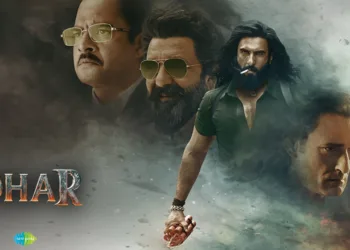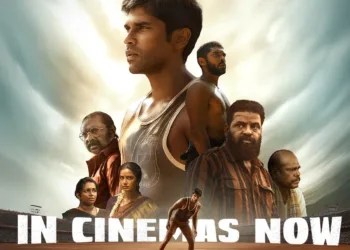James Gunn’s “Peacemaker” has redefined what superhero television can achieve, transforming a seemingly one-note villain from “The Suicide Squad” into a complex, multi-layered protagonist surrounded by equally compelling characters. The HBO Max series doesn’t just rely on action sequences and humor—it thrives on its unforgettable ensemble cast, each bringing unique personalities, moral complexities, and emotional depth that elevates the entire show beyond typical comic book adaptations.
From John Cena’s surprisingly vulnerable portrayal of Chris Smith to Danielle Brooks’ morally grounded Leota Adebayo, the series showcases characters who feel genuinely human despite their extraordinary circumstances. Here’s an in-depth look at the seven best characters that make “Peacemaker” a standout series in the DC Universe.
Table of Contents
Peacemaker Character Overview: The 11th Street Kids and Beyond
| Character | Actor | Role | Key Traits | Character Arc |
|---|---|---|---|---|
| Chris Smith/Peacemaker | John Cena | Main Protagonist | Complex, vulnerable, morally confused | From villain to reluctant hero |
| Leota Adebayo | Danielle Brooks | A.R.G.U.S. Operative | Compassionate, principled, grounded | Moral anchor of the team |
| Adrian Chase/Vigilante | Freddie Stroma | Vigilante/Best Friend | Unpredictable, loyal, socially detached | Desperate for approval and belonging |
| John Economos | Steve Agee | Tech Specialist | Cautious, loyal, self-deprecating | Growth from coward to team member |
| Emilia Harcourt | Jennifer Holland | Former A.R.G.U.S. Agent | Disciplined, distant, complex past | From authority to team player |
| Eagly | Dee Bradley Baker (voice) | Peacemaker’s Pet Eagle | Loyal, violent, surprisingly intelligent | Mirror to Peacemaker’s nature |
| Langston Fleury | Tim Meadows | Senior A.R.G.U.S. Operative | Blunt, socially awkward, experienced | Comic foil with hidden depths |

1. Chris Smith/Peacemaker – The Heart of Complexity
Chris Smith, better known as Peacemaker, embodies a mix of confidence, strength, vulnerability, and moral confusion that makes him one of the most fascinating antiheroes in recent television. First introduced in The Suicide Squad as an antagonist whose rigid devotion to “peace” justified extreme violence, the series explores his character more fully, revealing the contradictions and humanity beneath his bombastic exterior.
Character Development: John Cena’s portrayal transforms what could have been a shallow parody into a deeply troubled individual wrestling with his past. Beneath his bluster, Chris reveals a capacity for kindness overshadowed by a traumatic childhood. The accidental death of his brother and the oppressive influence of his white supremacist father inflicted lasting psychological wounds, shaping his fractured sense of identity.
Key Characteristics:
- Moral Confusion: His twisted interpretation of “peace through violence” creates internal conflict
- Vulnerability: Despite his tough exterior, he’s desperate for acceptance and friendship
- Growth Potential: Throughout the series, he genuinely attempts personal growth and redemption
- Tragic Past: Haunted by childhood trauma and his role in Rick Flag Jr.’s death
Why He Works: Cena brings surprising emotional depth to what could have been a one-joke character, making Peacemaker’s journey from villain to reluctant hero feel authentic and earned.

2. Leota Adebayo – The Moral Compass
Leota Adebayo, portrayed brilliantly by Danielle Brooks, serves as the emotional and moral center of the series. As the daughter of Amanda Waller (Viola Davis), she diverges significantly from her mother’s calculated and detached demeanor, bringing compassion and humanity to a world dominated by operatives and covert enforcers.
Character Significance: Among those in Peacemaker’s orbit, Adebayo emerges as one of the most balanced and grounded figures. She recognizes Chris’s flaws while acknowledging his sincere attempts at personal growth, refusing to write him off as irredeemable.
Key Relationships:
- With Peacemaker: Sees his potential for good despite his violent methods
- With Amanda Waller: Complicated mother-daughter relationship strained by moral differences
- With Keeya: Her partner relationship faces strain but maintains hope for reconciliation
Character Strengths:
- Empathy: Embraces compassion even when others see it as a liability
- Moral Courage: Willing to act on principle regardless of personal cost
- Authenticity: Remains true to her values despite family pressure
- Growth: Learns to balance idealism with practical necessities
Impact on the Show: Brooks’ performance provides the series with its emotional anchor, making viewers care about the team’s mission beyond the action sequences.

3. Adrian Chase/Vigilante – Controlled Chaos
Adrian Chase, known as Vigilante and played with unsettling perfection by Freddie Stroma, represents the most unpredictable element of the 11th Street Kids. Beneath his quiet exterior lies a ruthless fighter who acts with lethal efficiency, yet harbors a childlike need for companionship that makes him both endearing and disturbing.
Character Complexity: Vigilante’s relationship with Peacemaker forms one of the series’ most interesting dynamics. His desperate need for approval and friendship drives many of his actions, creating situations that are simultaneously hilarious and uncomfortable.
Defining Traits:
- Unpredictability: Never quite sure what he’ll do next
- Loyalty: Unwavering devotion to Peacemaker, often to a fault
- Violence: Casual approach to killing that unsettles even hardened operatives
- Social Awkwardness: Struggles with normal human interactions
Performance Excellence: Stroma’s portrayal captures both the ridiculous desperation of someone eager for approval and the unnerving volatility of a person detached from social norms. His presence injects volatile energy into every scene, keeping viewers and characters uncertain of his next move.
Relationship Dynamics: His obsession with being Peacemaker’s “best friend” creates both comic relief and genuine tension, especially when it interferes with mission objectives.

4. John Economos – The Reluctant Hero
Steve Agee’s John Economos provides both comic relief and subtle complexity as an A.R.G.U.S. operative with technical expertise. Initially cautious and self-preserving, he gains confidence through his bond with the 11th Street Kids, though his low self-assurance often limits his effectiveness compared to more decisive agents.
Character Evolution: Economos represents the everyman thrust into extraordinary circumstances. His journey from behind-the-scenes technician to active team member showcases realistic character growth that doesn’t feel forced or unearned.
Key Characteristics:
- Technical Skills: Invaluable for mission support and intelligence gathering
- Loyalty: Despite his fears, he consistently supports the team
- Vulnerability: His insecurities make him relatable to viewers
- Moral Compass: Avoids outright corruption while navigating gray areas
Comic Relief with Depth: While often serving as the butt of jokes, Economos never becomes a mere caricature. Agee’s performance finds the humanity in the character, making his fears and triumphs feel genuine.
Team Dynamic: His cautious nature often contrasts with the team’s more reckless members, providing necessary balance and practical considerations.

5. Emilia Harcourt – The Professional
Jennifer Holland’s Emilia Harcourt brings disciplined professionalism to the chaotic world of the 11th Street Kids. As a former top A.R.G.U.S. operative who experienced a fall from authority, she maintains emotional distance as a survival mechanism shaped by her intelligence work background.
Character Depth: While her first-season role was somewhat understated, Season 2 develops Harcourt’s story significantly, exploring her past and connections to other characters, particularly her ties to Rick Flag Jr., which create personal conflict and emotional stakes.
Professional Qualities:
- Discipline: Maintains focus under pressure
- Experience: Brings valuable field knowledge to missions
- Adaptability: Adjusts to working with unconventional teammates
- Complexity: Hides vulnerability beneath professional exterior
Relationship Development: Her evolving dynamic with Peacemaker, especially in alternate universe scenarios, adds layers to both characters while exploring themes of partnership and trust.
Growth Arc: From maintaining rigid professional distance to becoming emotionally invested in the team’s success and wellbeing.

6. Eagly – The Non-Human Scene Stealer
Every hero needs a loyal companion, and for Peacemaker, that role belongs to his bald eagle, Eagly, voiced by veteran voice actor Dee Bradley Baker. This isn’t just a typical animal sidekick—Eagly connects with Chris in ways that go beyond the usual human-animal bond, displaying almost human-like intelligence and emotional understanding.
Unique Characteristics:
- Intelligence: Shows problem-solving abilities and emotional awareness
- Loyalty: Unwavering devotion to Peacemaker
- Combat Skills: Surprisingly effective in dangerous situations
- Personality: Displays distinct preferences and reactions
Symbolic Significance: Eagly mirrors Peacemaker’s violent tendencies while also representing his capacity for love and connection. The eagle shows little hesitation in dispatching threats, reflecting Chris’s own approach to conflict resolution.
Season 2 Development: Early episodes reveal Eagly’s formidable combat prowess when A.R.G.U.S. operatives attempt to infiltrate Peacemaker’s home. The eagle single-handedly repels the assault, proving he’s more than just comic relief.
Emotional Core: The relationship between Chris and Eagly provides some of the series’ most touching moments, showing how even someone as damaged as Peacemaker can form meaningful connections.

7. Langston Fleury – The Wild Card
Tim Meadows’ Langston Fleury enters Season 2 as a senior A.R.G.U.S. operative partnered with John Economos, bringing a different energy to the established team dynamic. His character embodies the show’s absurd tone while potentially serving important plot functions.
Character Ambiguity: It remains unclear whether Fleury is a skilled psychological manipulator who deliberately unnerves people or simply a blunt, socially awkward agent. This ambiguity adds intrigue to his interactions with established characters.
Notable Traits:
- Experience: His demeanor suggests significant field experience
- Quirks: Claims to have “bird blindness” and makes dubious boasts about past exploits
- Unpredictability: Fits perfectly into the show’s chaotic tone
- Combat Readiness: Always prepared for action, especially involving “ducks”
Narrative Function: As a foil in the new season, Fleury’s survival seems unlikely given the show’s tendency toward character mortality, but his chaotic presence provides humor and unpredictability.
Integration: Despite being a newcomer, Meadows’ performance ensures Fleury feels like a natural part of the Peacemaker universe rather than a forced addition.
What Makes These Characters Special
The brilliance of “Peacemaker’s” character work lies in James Gunn’s ability to find humanity in the most unlikely places. Each character, from the titular antihero to his pet eagle, feels like a real person (or eagle) with genuine motivations, flaws, and growth potential.
Character Development Excellence:
- Moral Complexity: No character is entirely good or evil
- Authentic Relationships: Bonds between characters feel earned and genuine
- Growth Arcs: Each character evolves throughout the series
- Humor with Heart: Comedy never comes at the expense of character development
Ensemble Chemistry: The cast’s chemistry elevates individual performances, creating a found family dynamic that makes viewers invest in the team’s success beyond just the mission outcomes.
The Future of These Characters
With Season 2 now part of the new DC Universe timeline and connections to upcoming films like “Superman” (2025), these characters have the potential to impact the broader DCU. Their development in “Peacemaker” establishes them as valuable assets for future storylines.
For more superhero character analyses and DC Universe coverage, explore our comic book adaptations section and discover our HBO Max original series reviews.
Watch “Peacemaker” on HBO Max and follow our DC Universe coverage for the latest updates on James Gunn’s superhero projects.
Discover more character analyses and superhero series breakdowns at TechnoSports Entertainment.
Frequently Asked Questions
Q1: How does John Cena’s performance as Peacemaker compare to other superhero portrayals, and what makes his character development unique in the DC Universe?
A1: John Cena’s portrayal of Peacemaker stands out in the superhero genre because it completely subverts expectations from his initial Suicide Squad appearance. Unlike traditional superhero arcs that start with a heroic foundation, Cena’s Chris Smith begins as a genuine antagonist whose “peace at any cost” philosophy justified horrific violence. What makes his performance exceptional is the vulnerability he brings to what could have been a one-note character.
Cena allows viewers to see the broken child beneath the hypermasculine exterior, someone desperately seeking approval and friendship while wrestling with genuine guilt over past actions like killing Rick Flag Jr. His character development feels organic because it acknowledges his past sins while showing genuine growth, making him more psychologically complex than many traditional DC heroes who start from a moral high ground.
Q2: What role does the ensemble cast play in making Peacemaker successful, and how do supporting characters like Vigilante and Leota Adebayo contribute to the overall narrative beyond just being sidekicks?
A2: The ensemble cast is crucial to Peacemaker’s success because each supporting character serves as a different mirror for Chris Smith’s personality while having their own complete character arcs. Leota Adebayo isn’t just moral support—she represents the path Chris could take if he embraces empathy over violence, while her relationship with Amanda Waller creates external conflict about family loyalty versus personal principles. Adrian Chase/Vigilante functions as both Chris’s shadow (showing what unchecked violence looks like) and his biggest fan, creating a relationship that’s simultaneously touching and disturbing.
Their dynamic explores themes of friendship, hero worship, and the thin line between loyalty and obsession. Even characters like John Economos represent the everyman perspective, showing how ordinary people adapt to extraordinary circumstances. Rather than existing solely to support the protagonist, each character has personal stakes, individual growth, and unique relationships with other team members, creating a complex web of interactions that makes the 11th Street Kids feel like a genuine found family rather than a typical superhero team.








